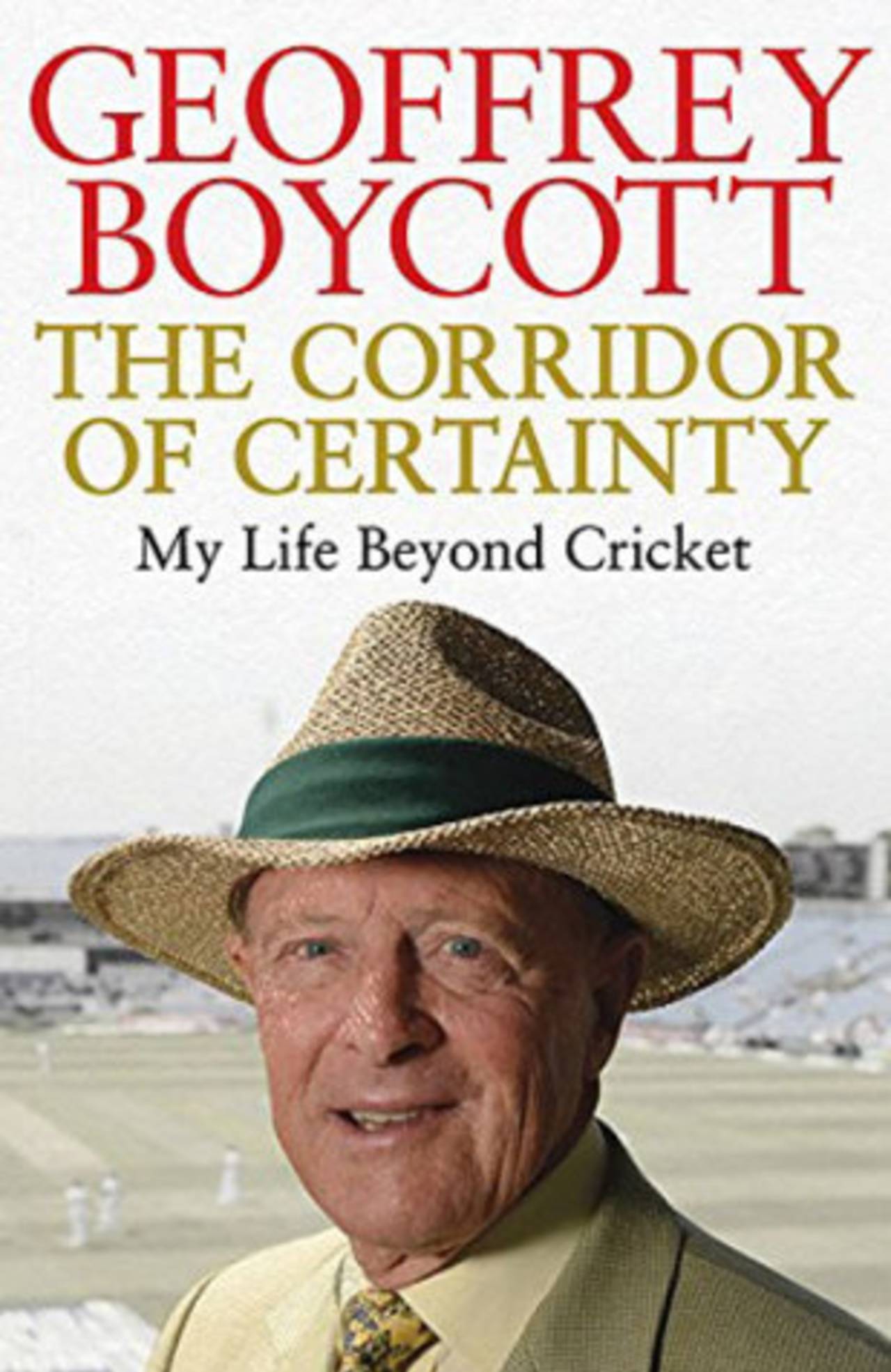Geoffrey Boycott is, by his own admission, a changed man. On the evidence of
The Corridor of Certainty there are three prime causes of the change: marriage, fatherhood, and a horrible disease.
Strictly speaking, The Corridor of Certainty is neither entirely a cricket book nor an autobiography. Boycott has already done that, publishing his first memoir in 1987. That was an extended exercise in self-justification, focused entirely on his route into top-flight cricket and the highs and lows once he got there. Now we have a much more rounded and nuanced book, full of self-awareness and a willingness, even eagerness, to acknowledge errors, failings and regrets.
The core of the book comes early. The third and fourth of 12 chapters relate Boycott's discovery in August 2002 that he had cancer, and the gruelling route to recovery. It's impossible not to be touched by the frankness and detail in these chapters, and by Boycott's acknowledgement of and gratitude to the people, both professional and personal, who supported him through the process. Yet Boycott the cricketer is still here. Writing of his radiotherapy, he says: "I counted the 35 sessions off like I would my runs when I was batting. I always had a gift when I was batting for knowing my own score."
Boycott, until now, has always been fiercely protective of his privacy, but here he opens up about the impact on his life of marriage to Rachael and becoming, relatively late in life, the father of Emma. Rachael lurks in the background of these chapters, providing loving support while all the professionals go about their life-saving business. As usual in a book like this there is an Acknowledgements page at the end. Only one person is acknowledged.
The Corridor of Certainty is structured in a way that allows Boycott to discuss matters, both historical and contemporary, that interest or bother him. The first two chapters will be of great interest to the Yorkshire nuts who don't already know the story of the internecine conflicts within the Ridings during Boycott's career, including the eight years he captained them, but might be hard work for readers who are not so concerned.
These chapters do, though, allow him to reflect at length on Fred Trueman, and the Boycott's regrets about the many years during which they had no contact as a result of the incredibly complex Yorkshire politics that led to Boycott's sacking. They were eventually reconciled, but there appears to be little hope for a few other Yorkies, chief among them Richard Hutton.
In recent times Boycott has been forthright in the commentary box about "the sledging curse", to which he devotes an entire chapter. It is no surprise to learn who is to blame for the curse: the Australians. One of Yorkshire's recent heroes, Darren Lehmann, "probably the best overseas player we ever had", is taken to task for inciting Australian crowds to have a go at Stuart Broad. "I love Darren," writes Boycott, before giving him a good telling-off.
Two sportsmen of different eras receive chapters of their own. Boycott attributes his support of Manchester United to his admiration as a young man of Denis Law. Fair enough, fantastic footballer. But it's still difficult to reconcile West Riding roots with a love of a team from over there. East of the Pennines a view south to Nottinghamshire and Derbyshire is more understandable, and Boycott's chapter "Cloughie my friend" is a great read. If ever a piece of writing gave the lie to the notion that opposites attract, this is it. Here are two driven, talented men who forged a close friendship after being introduced in the pavilion at Scarborough by Brian Close when Clough was still knocking in goals for Sunderland.
The last three chapters of The Corridor of Certainty concern the England team of the present and the recent past. Sandwiched between Boycott's thoughts on last winter's Ashes debacle and the future of the side is a chapter entitled "KP the enigma". He tells the story of Kevin Pietersen's England career, and bemoans the irresponsibility of some of his decisions, both on and off the field. The last two sentences of the chapter are the most intriguing though, given the identity of their author: "You can be an individual in a team, but you can't just be an individual because it is a team game. It is that simple".
The appeal of The Corridor of Certainty is not limited to the stuff about cricket. This a complex, driven man, whom we all recognise and admire for his achievements, revealing aspects of his life and survival that have hitherto been kept close to his chest. There is no fancy prose but we all know Geoff Boycott's voice and, despite assistance with the writing from his Telegraph colleague Nick Hoult, it can be heard in every sentence.
The Corridor of Certainty
By Geoff Boycott
Simon & Schuster
288 pages, £20




